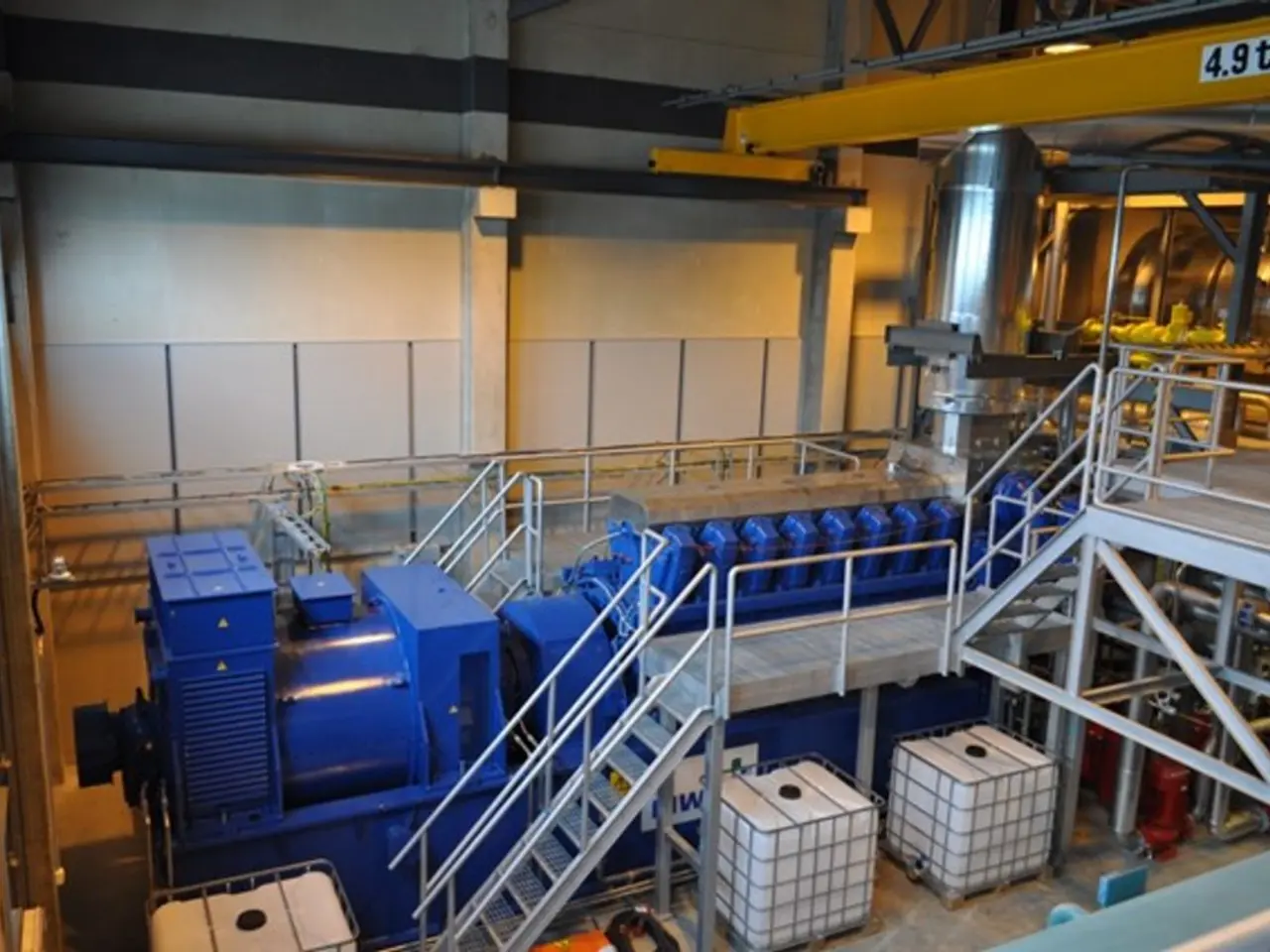Unveiling Groundbreaking Innovation in Berlin: Pioneering Hydrogen and Battery Tech Combination
Stadler Unveils Zero-Emission RS ZERO Rail Vehicle
In a significant stride towards sustainable rail transport, Swiss rail vehicle manufacturer Stadler has unveiled the prototype of the RS ZERO, an innovative successor to the successful RS1 Regio-Shuttle. The world debut of the RS ZERO, which incorporates hydrogen and battery technologies, took place in mid-2025 and marks an important advancement for environmentally friendly rail transport, especially on secondary lines where full electrification is often uneconomical.
The RS ZERO is a one-car vehicle available as a single and double unit, seating 70 to 150 passengers. The prototype presented in Berlin features a hydrogen drive, but it can be optionally equipped with a battery drive as well. This rail vehicle represents a significant step toward sustainable rail transport by combining hydrogen fuel cells and battery storage, allowing it to run with zero emissions—only water vapor—as a byproduct.
The RS ZERO's lightweight design aims to minimize energy consumption and enable cost-effective operation on routes without electrification infrastructure. The vehicle's futuristic design retains the characteristic trapezoidal window strips of the RS1, blending seamlessly into a modern LED wing.
The RS ZERO offers a solution for locally CO2 emission-free operation on these routes, regardless of whether they are electrified or require hydrogen refueling stations or charging islands. The vehicle's interior fit-out uses sustainable materials, such as flooring made from 98% renewable raw materials and free from synthetic rubber and plasticisers.
The RS ZERO's capabilities align with broader global efforts to reduce rail transport’s carbon footprint and meet climate targets. In India, a powerful indigenous hydrogen train was tested on July 25, 2025, capable of 1,200 horsepower and speeds up to 110 km/h. This Indian hydrogen train, designed to run on non-electrified routes, including heritage and secondary lines, demonstrates the practical deployment potential of hydrogen-battery rail technology for sustainable operation outside major electrified corridors.
Peter Spuhler, Chairman of the Board of Directors of the Stadler Group, stated that the RS ZERO enables them to further expand their technological leadership in the field of alternative drive technologies. Jure Mikolčić, CEO of Stadler Germany, expressed pride in building the next vehicle with alternative drive technology at the Berlin site after the battery-electric FLIRT Akku.
The RS ZERO prototype will be on show for the first time at InnoTrans 2024 from 24 to 27 September in Berlin on track T09/40. The vehicle presentation of the RS ZERO prototype will take place on 24 September 2024 at 14:00. The RS ZERO's low entry height, spacious and step-free low-floor area, and barrier-free design for passengers with limited mobility make it an accessible choice for all.
The RS ZERO's side wall panelling is made from recycled materials, including PET bottles. Its built-in air conditioning system works with a very climate-friendly refrigerant. The RS ZERO is ideally suited to creating an economically attractive transport service even on secondary routes with low traffic density.
In summary, the RS ZERO's debut signifies a promising advance in viable zero-emission rail transport tailored for secondary routes, potentially transforming these networks into environmentally friendly corridors without the need for widespread electrification. The RS ZERO marks the beginning of a new era in regional rail transport, offering a sustainable solution for local passenger transport.
- The RS ZERO, with its innovative blend of hydrogen fuel cells and battery storage, presents a significant step in the finance industry, potentially attracting investments in sustainable rail transportation.
- As more home-and-garden solutions employ eco-friendly practices, the RS ZERO's sustainable materials inside the vehicle align with the trends of sustainable living in lifestyle choices.
- The transportation industry will witness a shift with the introduction of the RS ZERO, as it promotes sustainability through zero-emission technology and becomes an example for other vehicles to follow suit.
- Technology will play a crucial role as the RS ZERO's implementation extends to various industries, including industry, transportation, and home-and-garden solutions, contributing to the realization of globally set climate targets.





